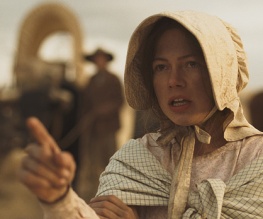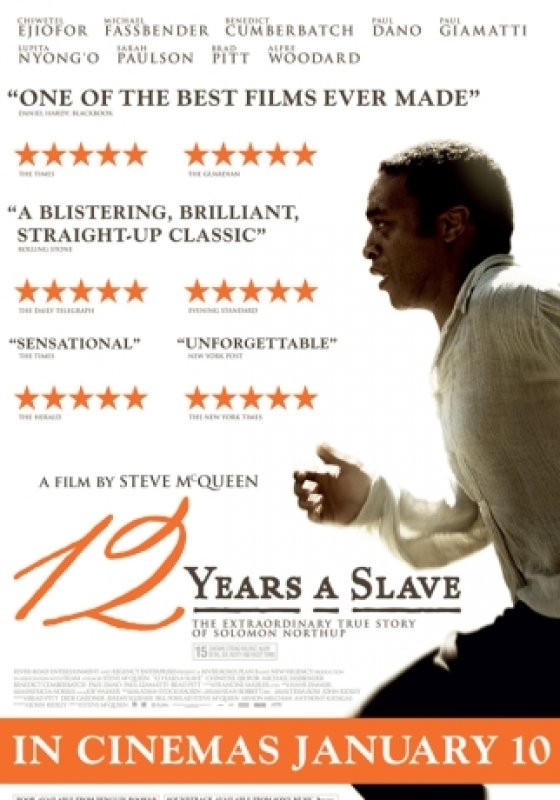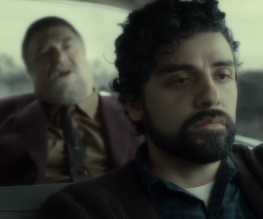Meek’s Cutoff

In the wake of the Coen Brothers’ hotly anticipated first take on the Western genre, True Grit, Meek’s Cutoff feels a bit odd. It’s set on the Oregon Trail in 1845, so its context is legitimately Old West, but director Kelly Reichardt has made her name with understated narratives and she’s not going to change tack now, abandoning traditional tropes for what has been referred to as a more feminine take on the archetypal pioneers’ tale. Stripping out some of the melodrama which inevitably attends most rootin’-tootin’ Westerns is no bad thing, but you can only take so much liveliness out of a film before it has no life left at all.
Five weeks after leaving the main stem of their wagon train, a small group of settlers and their guide Stephen Meek (Greenwood) are hopelessly lost in the Oregon desert. Gruff patriarch Soloman (Patton), family man William (Neal Huff) and earnest youngster Thomas (Dano) are convinced their daring shortcut will bring them to a ‘second Eden’ where riches will abound, but their previously steadfast faith begins to run out as quickly as their improbably small water supply. The irascible and untrustworthy Meek has proved himself to be an increasingly unreliable navigator, so when he catches a native (Rondeaux) who’s been following the party the settlers assume the ‘heathen’ will be their salvation.
However, the man speaks no English and remains deeply mistrustful of the white men who feed him but keep him tied up, and his incomprehensible chants and carvings lead Meek to suspect that an army of ‘Injuns’ are being gradually led towards the depleted wagons of the small, scared group. Although Soloman’s wife Emily (Williams) attempts to forge a connection with their unusual travelling companion, the others believe only that he is not to be trusted – “they don’t think like us”, comments Neal’s wife Glory (Shirley Henderson), “and that’s a documented fact” – but as their supplies dwindle, the defiant Native American’s leadership becomes their only hope of escaping from an endless, featureless and dusty hell.

There are many, many areas in which Meek’s Cutoff is a triumph. It is a totally immersive experience, largely devoid of extra-diegetic scoring and littered with uncomfortably long and uneventful scenes which force the audience to contemplate the grinding tedium of walking from dawn until dusk for weeks at a time. Static shots showing the small wagon train edging across the endless plains are used to brutal effect, and the deliberately sparse dialogue is convincingly eked out by the more-than-capable cast. Michelle Williams’ Emily, the pillar of strength who supports Solaman’s decisions but also pursues her own agenda with the native, is particularly worthy of praise, whilst Shirley Henderson provides the smattering of comic moments. Only Bruce Greenwood seems over-the-top, with a growly performance which belongs very much in the other type of Western.
However, and not forgetting the above, even the most dedicated viewer will eventually begin to feel as exhausted and worn down as the characters. Meek’s Cutoff is a weighty 104 minutes long and, at a guess, contains forty minutes of dialogue – Reichardt’s twin talents as director and editor are very well showcased, but the downside of making a hyper-realistic film about a mind-numbingly dull subject is that its tedium positively leaks out of the screen. As the audience became increasingly fidgety and the frequent blue glow of a mobile phone betrayed sneaky clock-watching, it became clear that the ending would have to be quite something to win back the audience – and, put simply, it isn’t. This is a great artistic achievement filled with intelligent visuals and fine performances, but it is fundamentally unenjoyable.





Recent Comments